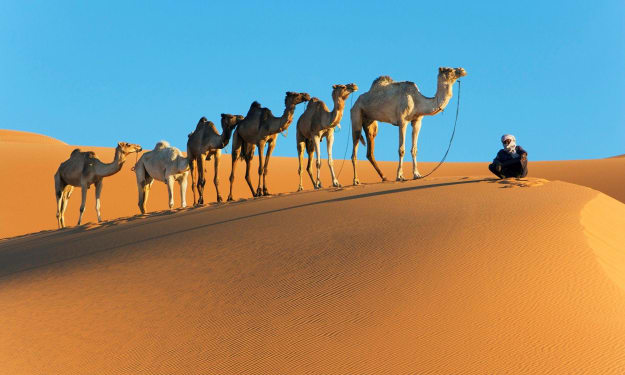How Reversing Earth's Rotation Would Change Our Planet
Why Altering Earth's Spin Could Transform Climate, Ecosystems, and Human Life

Stand on the equator, and you will be moving at 1,670 kilometers per hour, quicker than the speed of sound. That's how rapidly Earth rotates on its axis from west to east, and this rotation is largely responsible for the distribution of every desert, forest, and swamp on the planet.
So, let's do a small experiment. Let's say we invert Earth's rotation. What then? Well, you'll change a lot more than just the sunsets. This might seem like a crazy scenario at first, but scientists have actually run simulations for a backward-spinning Earth because it happens to be a great way to test how well we can model our planet. So, let's imagine we have a huge, red button, and presto.
Initial Impact: As Earth slows down to reverse direction, everything would go flying to the east, causing significant disruption. Buildings would collapse, oceans would slosh violently, and the atmosphere would be thrown into chaos. Once Earth stabilized in its new direction, life would begin to adapt to the new normal.
Trade Winds: These winds normally blow westward due to Earth's rotation. On a backward-spinning Earth, they would reverse direction. Initially, changes would be relatively small. For example, hurricanes would no longer travel from east to west across the Atlantic, and westbound flights would suddenly be much shorter compared to eastbound.
Rain Patterns: Long-term changes would be profound. For example, the Sahara Desert could become lush and green due to new rainfall patterns. Overall, the world's deserts might shrink significantly, potentially offsetting some effects of climate change by increasing plant life and carbon dioxide absorption. A study suggests that the deserts of the world would decrease from 42 million square kilometers to 31 million, providing new habitats for diverse flora and fauna.
Westerlies: These winds, which currently blow east across the Northern Atlantic, bringing warmth to Northwest Europe, would reverse. As a result, Europe could experience much colder winters, with temperatures dropping by up to 10 degrees Celsius. This would drastically alter agriculture, energy consumption, and daily life in affected regions.
Ocean Currents: The Gulf Stream, which transports warm tropical waters northward, would reverse and shrink, leading to colder conditions in the North Atlantic. This could disrupt marine ecosystems, affecting fish populations and the human economies dependent on them. Coastal regions might also experience different sea levels and erosion patterns.
North American Landscape: The iconic deserts of the American Southwest would shift to the Southeast, dramatically altering the region's environment. Areas like Arizona might become lush and green, while states like Georgia and Florida could turn arid. This would affect agriculture, wildlife, and human settlements, necessitating massive adaptations in water use, crop selection, and infrastructure.
Sunset: In a reversed Earth, sunsets would occur in the east, a peculiar change in daily life. This would impact cultural practices and daily routines, from how we design buildings to how we tell time and conduct outdoor activities.
Biodiversity and Ecosystems: Reversed rotation would affect ecosystems globally. Species adapted to specific climates and environments might struggle to survive as their habitats change. Some regions could see a resurgence of biodiversity, while others might face increased extinction rates. Forests could expand into areas that were previously deserts, and grasslands might replace tundra in northern regions.
Human Society: The geopoliticl landscape could shift alongside the physical one. Countries with previously arid regions becoming fertile could see economic booms, while those losing arable land might face crises. Migration patterns would likely change as people move to newly hospitable areas, potentially leading to conflicts over resources.
Reversing Earth's rotation is a fascinating thought experiment, highlighting the intricate and interconnected nature of our planet's climate systems. While purely hypothetical, it underscores the delicate balance of factors that sustain life on Earth and the far-reaching consequences of altering one fundamental aspect of our world.
About the Creator
Enjoyed the story? Support the Creator.
Subscribe for free to receive all their stories in your feed.





Comments
There are no comments for this story
Be the first to respond and start the conversation.